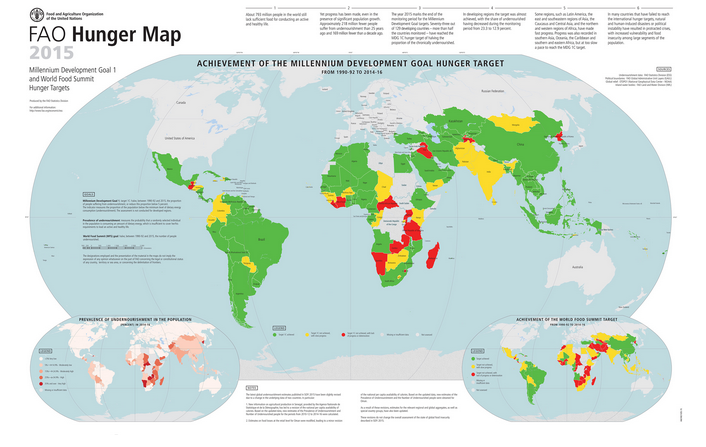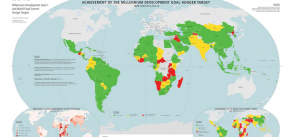
The world produces enough food to feed everyone. So why do people go hungry?
Last September, world leaders made a commitment to end hunger by 2030, as part of the United Nations Sustainable Development Goals (SDGs). It sounds like a massive undertaking. In fact, the world already produces enough food to feed everyone. So why does the problem persist?
Poverty and hunger are intimately connected, which is why the SDGs target elimination of both. For someone living at the World Bank’s poverty line of $1.90 per day, food would account for some 50-70% of income. The Bank estimates that almost four-fifths of the world’s poor live in rural areas, though those areas account for less than half of the world’s population. The obvious conclusion is that raising rural incomes sustainably is required to eradicate hunger.
[Full article here | Image by FAO]







